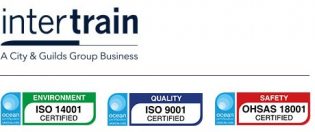Essential Leadership Skills – How Can Alternative Partnership Help?
At Alternative Partnership, we believe that leadership is not just a position—it’s a capability that can be built and nurtured. The following seven key abilities explored—expertise, innovation, persuasiveness, problem-solving, empathy, networking, and communication—are at the heart of what we develop through our leadership and management programmes. Whether you’re a seasoned business owner, a newly appointed manager, or an aspiring leader, investing in these skills is critical for navigating change, inspiring teams, and driving sustainable growth. Our tailored programmes are designed to turn potential into performance, equipping individuals and organisations with the tools, mindset, and confidence to lead effectively in today’s complex world of work. Developing leadership is not a luxury—it’s a strategic necessity, and we’re here to support that journey every step of the way.
- Expertise
A strong leader is often recognised for their specialised knowledge and skill set—this is what makes them the go-to person for specific challenges or projects within an organisation. Expertise forms the foundation of a leader’s credibility and influence. It’s not just about having knowledge; it’s about knowing how to apply it effectively in decision-making and strategy.
To develop genuine expertise, leaders must first take stock of their strengths. This includes acknowledging abilities that may come so naturally that they’re often overlooked. Sometimes the skills we take for granted—like pattern recognition, interpersonal intuition, or technical acumen—are our most valuable assets. Once a leader identifies their key area(s) of expertise, the next step is to fully leverage it: apply it to strategic goals, share it to mentor others, and use it to build a trusted leadership brand within the organisation.
- Innovation
Adaptability is the currency of leadership in a fast-changing world. Great leaders know how to respond to emerging challenges with fresh ideas and forward-thinking solutions. Innovation isn’t just about generating groundbreaking concepts; it’s about fostering an environment in which creative thinking is both encouraged and acted upon.
While innovation can’t be forced, it can be cultivated. Leaders can do this by challenging outdated processes, rethinking how brainstorming sessions are run, and creating psychological safety—where team members feel comfortable sharing ideas without fear of judgment. Encouraging diverse viewpoints, prototyping solutions quickly, and learning from failure are all part of this mindset. Innovative leaders don’t necessarily need to have all the ideas themselves; their role is to make innovation part of the team’s culture.
- Persuasiveness
One of the most powerful tools in a leader’s arsenal is the ability to persuade. Persuasiveness goes beyond selling a product or service—it includes the ability to communicate a vision, shift perspectives, and build alignment around new directions.
Many leaders may not initially see persuasion as part of their role, especially when leading technical or process-focused teams. However, leadership almost always involves change, and change requires buy-in. Whether it’s advocating for a new strategy, introducing a shift in priorities, or simply encouraging collaboration across departments, a leader’s ability to present ideas compellingly and influence others’ thinking is critical. This doesn’t mean being manipulative; it means engaging people in a way that makes them see value and possibility in your perspective.
- Problem-Solving Abilities
Effective leaders are proactive problem solvers who not only tackle issues as they arise but also empower others to do the same. One key trait of successful leadership is helping teams develop the critical thinking skills needed to handle smaller problems before they escalate.
At the heart of strong problem-solving lies the ability to ask the right questions—questions that reveal the real root of the issue rather than just its symptoms. Leaders must also frame problems clearly and constructively so that solutions are relevant and actionable. Seeing challenges from multiple angles, considering long-term implications, and encouraging creative input from the team all contribute to more effective problem-solving. A leader’s role isn’t to have all the answers but to facilitate the discovery of the best ones.
- Empathy
Contrary to widespread opinion, empathy is no longer a “soft” skill—it’s a core leadership competency. In today’s collaborative and inclusive workplaces, a leader’s ability to genuinely understand and share in the feelings and perspectives of their team members is crucial.
Empathy begins with openness—being present, listening actively, and withholding judgment. When leaders make the effort to view challenges through the eyes of their team, they gain valuable insight into what motivates and hinders performance. This understanding helps leaders provide the right support and tools tailored to each individual’s needs. Furthermore, teams that feel seen and heard are more engaged, loyal, and productive. Leaders who lead with empathy create a foundation of trust that enables people to do their best work.
- Networking Skills
Strong leaders don’t operate in a vacuum—they thrive within rich networks of peers, mentors, collaborators, and experts. These connections, both within and outside the organisation, serve as vital sources of insight, innovation, and opportunity.
Networking is not simply about collecting contacts. It’s about cultivating meaningful, reciprocal relationships. Leaders who actively build and maintain diverse networks are better equipped to bring in outside perspectives, find solutions faster, and spot emerging trends. Importantly, great networkers don’t just keep their contacts to themselves—they share them generously. By connecting others, leaders amplify their impact and become known as trusted facilitators, not just individual contributors.
- Communication Skills
Clear and compelling communication is at the heart of effective leadership. It allows leaders to set expectations, align teams around goals, and inspire action. Whether the objective is to guide, motivate, or resolve conflict, a leader’s ability to communicate well directly influences team performance.
Good communication is about more than just transmitting information—it’s about making sure the message is understood and resonates. Leaders should tailor their communication style to suit different audiences and situations. They must also know when to communicate in person, rather than relying on written or electronic messages. Face-to-face communication remains the gold standard for conveying empathy, enthusiasm, and vision. Phone calls and video chats come next, while email should be reserved for transactional updates or follow-ups. Exceptional leaders strike the right balance between instructing and inspiring through their words and presence.
Developing Leaders
As a manager or leader, there’s always something new to learn or a skill you can improve and develop. Organisations need to support managers and leaders in this development, but you also need to invest in yourself.
Getting formal leadership and management training will not only help you build your leadership skills, it will also help you grow in confidence, and increase your chances of career progression.
Alternative Partnership delivers ILM-accredited Leadership and Management training programmes to support you and your teams in gaining formal, nationally recognised qualifications.
Find out more about our current ILM courses here or get in touch to discuss how our services could benefit you.












